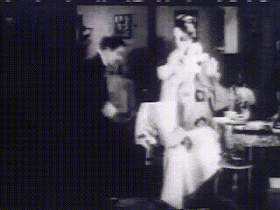I have dwelled in the land of don’t want to
Very long, and find now I can trudge sunwards
If I try real hard
(But I must try real hard)
I had the wrong heroes when I was a girl, the Joplin
curse,
the Sexton disaster,
and Plath most of all. That Sylvan creature: a
spirit that lives in or frequents the woods
and surely, her best bursting blackberrying poems
glistened with the slippery reality of nature.
Nature?
I always thought in terms of an Autoplatt, an
Automat, some autocratic near-Nazi standing at the blackboard with glistening
blue eyes. Well, what did she know about his intellect anyway? Only that his
foot rotted off, had to be lopped, but it was too late,
Because Autoplatt had decided to die.
To die, to die, to die
Because Plath had decided to die.
Death ripples along, unfortunately, vibrates
sympathetically like a guitar string,
While the rest of the family clutches itself and
can’t breathe.
No, no, not another suicide, this one I can’t bear,
Not Assia, that bitch, we knew she was evil,
And the villagers never liked her
Surely even the weirdest witch wouldn’t take a
toddler with her
What if that girl had grown up? But she didn’t.
Sylvia, she of Sylvania,
vain and full of mania
Was called “Sivvy” as a child, and maybe it’s more
appropriate,
Since she was something of a sieve: all affection
drained away.
Hey, how does this shit happen anyway? Is it a
defective switch, some faulty wiring that can be fixed with a drug, a plug,
electric slug?
Does it run in the blood, worm through the spiral
of DNA, scream through the genes?
The circular path is a dizzy one, and it’s easy to
get lost.
And look at the cost.
Sylvia, Sylvania,
creature of the night, firefly, Tinkerbell,
Enchanted woodland sprite,
We saw you in your sweaters, all angora, and that
lipstick like Lana Turner,
And the cinched-in belt, and the claim of biting
Ted’s cheek until it bled
As if to say: Look how sexual I am, look what an
animal.
Did she ever really have an orgasm?
When famous, poets take on a robe, become the thing
they are painted to be.
Vaunted.
This was just beginning to happen.
But by the time fame came, it was too late, her
heart had been removed again
But this time not shoved back in upside-down.
“If I’ve killed one man, I’ve killed two,” she
bragged in her manifesto of paternal hate: as if Ted Hughes had been rammed
down her throat, as if she had no choice. She could have picked a faithful,
more generous man. Could she? Would she? But she picked another poet. Was she
mad, I wonder?
What is crazy? The categories bleed into each
other. Plath was this, she was that. Today she’d be bipolar, because it’s the
diagnosis du jour. And lithiumed, and Seroquelled, or even Lamotrigened.
Purists would say this would kill her art for good.
Better to be walking around, so you can at least
feed your kids grilled cheese sandwiches instead of leaving them there like
some primitive beast rejecting your young?
Oh no, she had to live on her terms! But what
terms? And do you call this living?
Make great art, kill yourself. Make great art, kill
yourself. Then study biology and kill yourself, the same fault line cracking
through the sweet little boy who knew nothing.
I hate this, I want it gone. I hate life too, I’ve
tried to die, but it was sickening, embarrassing, I was no good at it. I have
only spurts of joy in living, but I have them. I am happy “in” certain things.
Not the rest.


















































